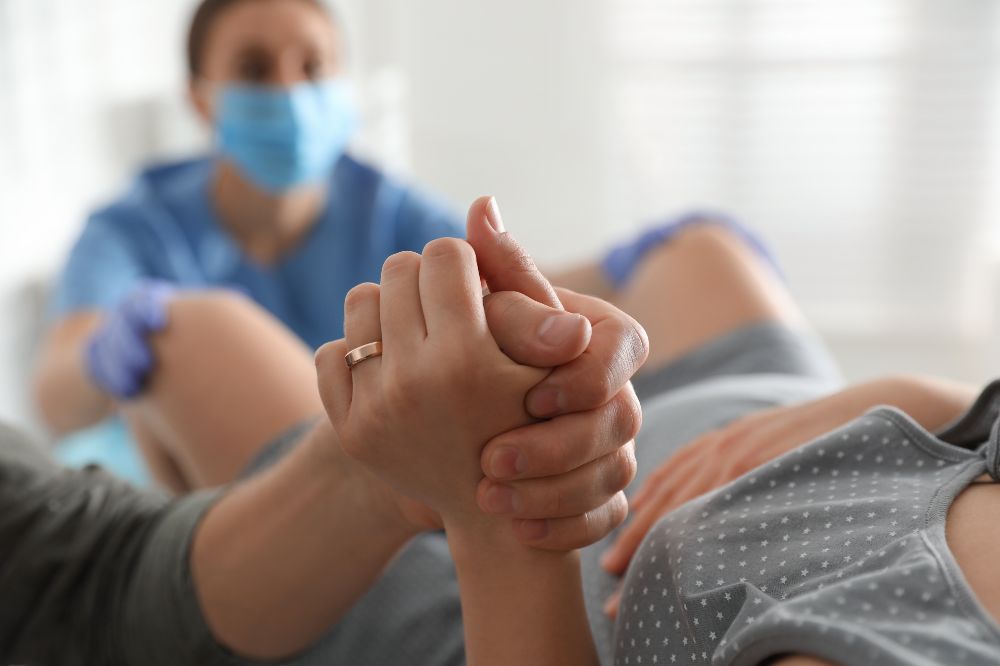Plaid Cymru MS launches bid to transform healthcare for women and girls

Emily Price
A Plaid Cymru MS has launched a bid to transform healthcare for women and girls and counter the normalisation of women’s pain and suffering during gynaecological procedures.
South Wales East MS, Delyth Jewell has applied to the Senedd to seek agreement to introduce the ‘The Strengthening Women’s Voice and Agency in their own Healthcare (Wales) Bill’.
She hopes it will address barriers to women’s rights to health – particularly concerning gynaecological conditions such as endometriosis, menstrual problems and menopause – and services for health conditions where gender-related disparities occur.
Any Senedd Member wishing to propose a Bill can apply to be included in a ballot which is held by the Presiding Officer.
To be eligible for the ballot, Members must table certain pre-ballot information, including the proposed title of the Bill and its policy objectives.
An MS who is successful in the ballot can then table a motion asking the Senedd to agree that they can introduce a Bill to give effect to the proposal included in the ballot.
If that motion is agreed, the Member has 13 months in which to formally introduce a Bill.
All Members who are not in the Welsh Government are eligible to propose a Bill apart from a Member who has already won a ballot in the current Senedd term.
Once introduced, a Member Bill is subject to the same scrutiny process as other Bills.
Pain
Ms Jewell says she hopes her proposal will encourage more open and honest conversations about women’s physical and emotional pain in health care.
She said: “For most women attending smear tests or other gynaecological appointments, they are told, ‘this may hurt a bit.’ – but why should it hurt a bit? Why is it that women are just expected to put up with certain types of pain?”
A 2019 report by The Royal College of Obstetricians and Gynaecologists recommended that each of the four UK nations publish a plan to address areas of unmet need for women’s health.
Delivery plans have already been published in Scotland and England – but not yet in Wales.
The Welsh Government says it’s committed to improving health services for women and girls and to address the inequalities that exist in Welsh healthcare.
The Wales specific plan is expected to be published at the end of 2024.
The Welsh Government’s quality statement on women and girls’ health, which outlines physical and mental health issues that affect women and girls across their life course, was published in July 2022.
It describes what health boards are expected to deliver to ensure good quality health services to support women and girls.
Ms Jewell’s Bill aims to strengthen the expectation of NHS services for women by making it a legal requirement for healthcare providers to collect feedback about the care women receive – particularly gynaecological appointments, midwifery, afterbirth, perinatal mental health and during and after menopause.
She said: “Why haven’t we found ways in dealing with these sort of procedures that don’t allow women to go through so much hurt and distress?
“The trauma that women are put through because of this lack of dignity that’s shown to them just shouldn’t be normal.
“We need to start talking about this more and acknowledge that things need to change. Pain in women’s healthcare shouldn’t just be expected and accepted as something women just have to put up with.
“Particularly with young women, if it’s their first smear test, some expect it to be painful which can lead to them to fearing check ups.
“If they have this expectation that anything gynaecological is going to be unpleasant and invasive it may lead them to not seek care when they need it.
“If my Bill proposal were to be selected, I would want to be working with other members of the cross party group for women’s health.
“I’d want to be getting the expertise of midwives and gynaecologists to look at how we can strengthen women and girls voices in their own healthcare.”
Pain gap
The Plaid Cymru MS also hopes the Bill will address gender inequalities relating to the treatment of acute pain.
According to a recent data from Nurofen, the gender pain gap had widened from 7% in 2022 to 11% in 2023.
The report found that women are more likely to have their pain dismissed or ignored by health care professionals.
Ms Jewell said: “The overarching aim I’d want to achieve with this Bill proposal is to counter the sense that women’s pain is accepted in healthcare.
“It would be wonderful if my Member Bill proposal is selected – but if it’s not selected. I’m going to be looking at other legislative opportunities to bring this up.”
In an update published in March 2024, Cabinet Secretary for Health and Social Care, Eluned Morgan said that despite financial pressures she had instructed officials to prioritise moving resources towards women’s health over the next couple of years.
She said: “I have been clear in my commitment to improve health services and outcomes for women and girls and to address the inequalities that exist in our healthcare system.
“I have set out strategic actions, including setting expectations for NHS services through the Quality Statement for Women’s and Girls’ Health.
“I have set up the National Clinical Strategic Network for Women’s Health, which will be led by two key roles – the clinical lead and strategic network manager. And the Welsh NHS is developing a Women’s Health Plan.”
Support our Nation today
For the price of a cup of coffee a month you can help us create an independent, not-for-profit, national news service for the people of Wales, by the people of Wales.






